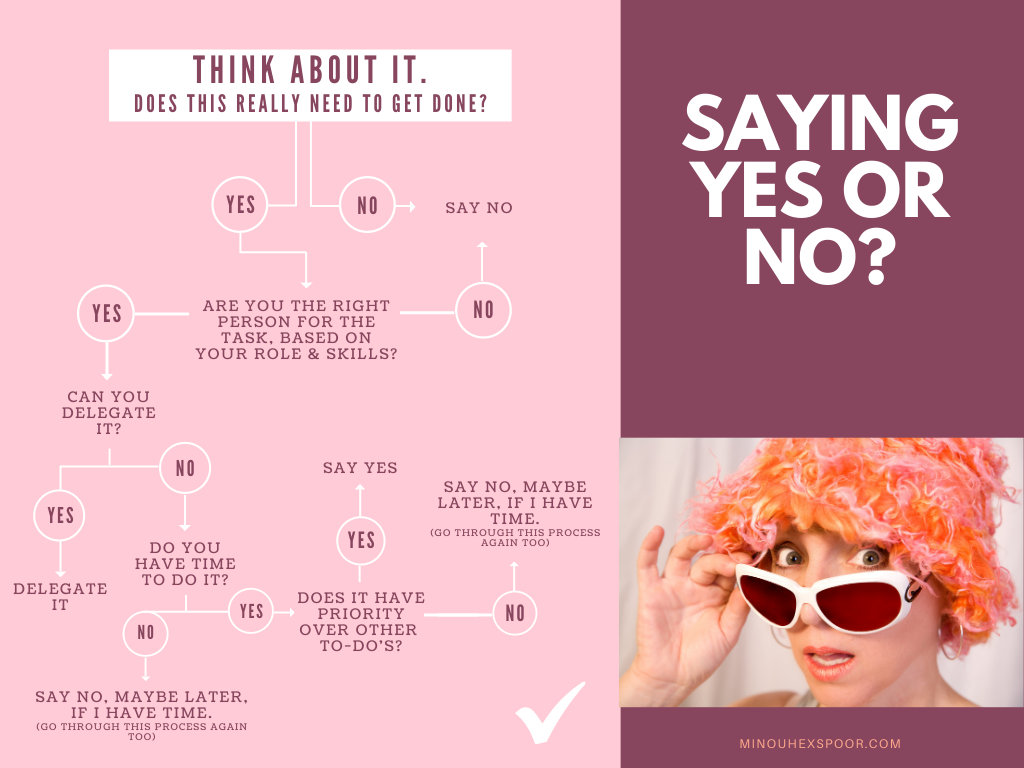
Being an empath can lead to you feeling overwhelmed and exhausted, since you often deal with both your own emotions and those of others.
Setting boundaries (and sticking to them) can be hard enough as it is. But as an empath, this can be especially challenging. That is why I have written this article, to help you understand whether you’re an empath or not, why it is so difficult for empaths to set boundaries and to provide you with some pointers on how to start setting those boundaries. Trust me, it will help you tremendously!
What is an Empath?
Are you highly aware of the emotions of the people around you and, sometimes, can even feel those emotions yourself? Congratulations, you can call yourself an empath!
Being an empath gives you the opportunity to be highly aware of what is going on with other people, and really notice and feel when someone needs support. You can sense the vibe in rooms you enter and are strongly influenced by violence, tragedies or injustice that you come across, even though it doesn’t happen to yourself.
You are a highly emotional person and people often turn to you for your compassionate advice not in the last place because of your calming and healing effect on others. You can’t see someone in pain or distress without wanting to reach out.
Do you recognize yourself in the description above?
Although being an empath can help you see the beauty in lots of people and things and makes you a beautiful person in the first place, it also has a darker side…
How many times have you said ‘yes’ to things you didn’t want to agree to, or felt drained because you experience a lot of emotions at the same time? Exactly, probably more often than never. And that’s not really a surprise, being an empath…

Why is it difficult for empaths to set boundaries and stick with them?
As an empath, you’re not just aware of the emotions of the people around you, you can also have trouble distinguishing other people’s emotions from your own. This can make it very difficult for you to keep your own emotions in check.
Being an empath can lead to you feeling overwhelmed and exhausted, since you often deal with both your own emotions and those of others. Visiting public spaces or being in a large group can pose real challenges, since you can suddenly be filled with emotion that don’t necessarily belong to you. Therefore, working in an office or having to go to birthday parties can be something you absolutely dread
But, then again, you don’t want to have to say ‘no’ to your friend, who has gone through a lot of trouble to organize her birthday party, right?
Since you’re highly empathic, you tend to understand where people are coming from and what needs they have. When a colleague is struggling to finish her work or your best friend needs help with her kids, you can actually experience their troubles and, therefore, are more likely to help them. Which can be a really nice thing to do, as long as it doesn’t cross your boundaries. And, let’s be honest, it often does.

Why is it important to set Boundaries?
Losing grip of your own emotions and really wanting to help someone in need can often lead to you forgetting about your own needs. You tend to overlook yourself in order to help someone else or simply don’t want to deal with feelings of guilt whenever you turn someone down. Therefore, you tend to please people, even if that means that you have to make some personal sacrifices. But that is probably not the most sensible thing to do…
Setting boundaries is essential for making sure that you can live your life on your own terms. Setting boundaries – and actually living by them – enables you to live by your own values, your own set of ‘rules’, and can prevent others from crossing your lines. That is, as long as you communicate clearly about those boundaries.
Healthy boundaries define the playground within which we can choose our experiences and live our best lives!
How to Set Boundaries as an Empath
Like I mentioned, setting boundaries can be hard enough as it is, let alone when you are an empath and are dealing with not just your own emotions, but those of others, too. Let me help you out a little bit here.
With these practical tips, especially designed for you as an empath, you can start to set your own boundaries and live life on your own terms.

See the Saying No Chart below!
Learn to Live & Work with Purpose and Self Love, with Minou Hexspoor Coaching
Learn to Say No
I get it, it can be hard to say ‘no’ when you’re used to saying ‘yes’ all the time. Especially when you really feel for someone and really want to help them, saying ‘no’ can feel really wrong.
But what will saying ‘no’ really lead to? People really won’t think of you as unkind or unhelpful if you recline their requests when you don’t feel like it. After all, a healthy relationship should not be based on you saying ‘yes’.
Therefore, it is very important that you learn to decline whenever you are not up to something. Remember, you can’t help others if you can’t help yourself. And… when you start saying no, your ‘yes’ becomes so much more conscious and powerful for you and for others.
No more misusing or taking for granted of your willingness to help, but instead honest gratitude for the care you choose to give to others.
Communicate Clearly
It is not just about setting boundaries; it is about communicating them. When you set boundaries for yourself, but don’t communicate them (clearly) with anyone, chances are that they are going to be crossed anyway. If people cross your boundaries, they do so because you let them.
Therefore, try to clearly communicate your own wants and needs, so others can take them into account. And, also, try not to cross those boundaries yourself. Once you have set your healthy boundaries, try to actually stick to them. As an empath, you’ll probably be tempted to cross them quite often by requests that you would normally accept, but stay strong and guard those boundaries to protect yourself from overwhelm and stress.
And ask yourself: what other doors open for you once you set those boundaries? I bet it has a lot to do with selfcare, stress reduction, space and time for your own thoughts and feelings ,and, and, and…
Guard Your Energy
Since you pick up others’ energy in a heartbeat, no matter the situation, it can be quite the challenge not to confuse your own energy with those of others. This means that it can really help you to guard your own energy.
Whenever you feel slightly overwhelmed or suddenly experience feelings that don’t match those that you were feeling before, try doing some breathing exercises to ground yourself and try to actually feel what it is that YOU are feeling. Is someone (strongly) influencing your energy?
Try and temporarily remove yourself from the situation – say you need a breather – and check in with your own energy before re-entering the situation.
Take Care of Yourself
If you gave yourself all the love, support and attention that you give to others, what would you do differently?
You could ask yourself this question in the spirit of focusing more on self-care. As an empath, you are inclined to constantly be there for others. But it is at least as important – maybe even more so – to be there for yourself.
Therefore, put your own wellbeing at the top of your priorities list and spend time on doing things that matter to YOU.
Explore Your own Needs in different Situations
Empaths are extremely talented in hearing, feeling and anticipating the needs of others. They are less talented, however, in hearing, feeling and anticipating on their own needs. This is because their default mode is usually focused on the other, to which they then respond.
This means it can be quite the challenge for an empath to start with the Self. What does that self feel, think and need without all the other contextual input from and about others?
Over the next couple of days, pick 3 situations during which you stop and consciously ask yourself ‘what do I want or need right now? What would it look like if I honour that need right now?’
Explore the Role You are Playing
Often, empaths naturally end up in the role of caretaker, the one who is there for the other in relationships. In some relationships, that feeling is reciprocal, and you have a balanced situation. Many times however, empaths end up on the giving part of the equation, while the other party ends up in the role of the person in need.
When we find ourselves in those roles as empaths, it could be worth asking yourself some serious questions:
- By stepping into the caretaker role, who do I assume to be towards the other?
- What role am I reconfirming for them to be in? Does that really serve them?
- Is my empathy and my caregiving getting in their way of growing and learning and empowering themselves?
- How could I approach this relationship in a way that I empower the other person to take responsibility that now I am taking for them?
- What does this person really need to grow into a more self-reliant individual?
- How can I learn and grow from being in this role?
- What would be different if we could both grow from this relation?
Setting boundaries can be challenging, especially when you’re an empath. However, there are quite some practical approaches that can prevent you from letting others cross your boundaries and you ending up overwhelmed, stressed out and constantly fatigued. Taking care of yourself and honouring your own wants and needs is very important, especially when you feel as much as you do. By doing that, you can use your empathy to do good for others, while still prioritizing yourself.


